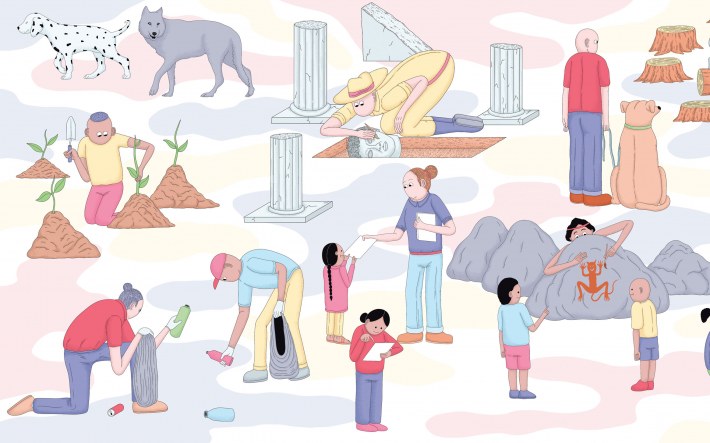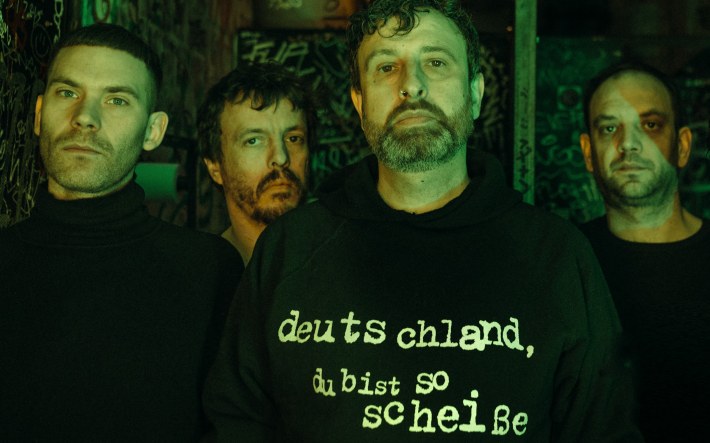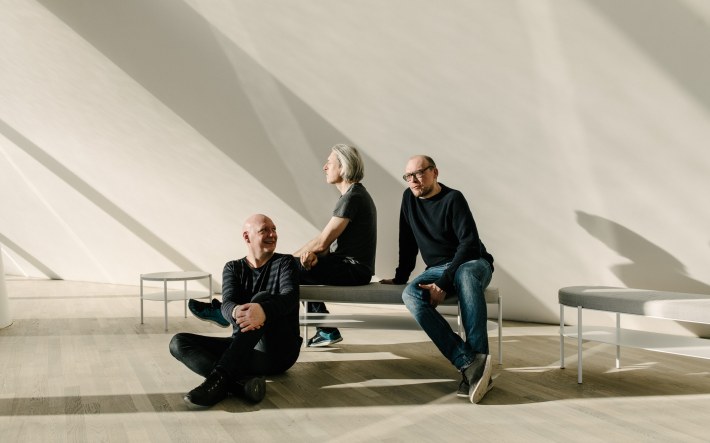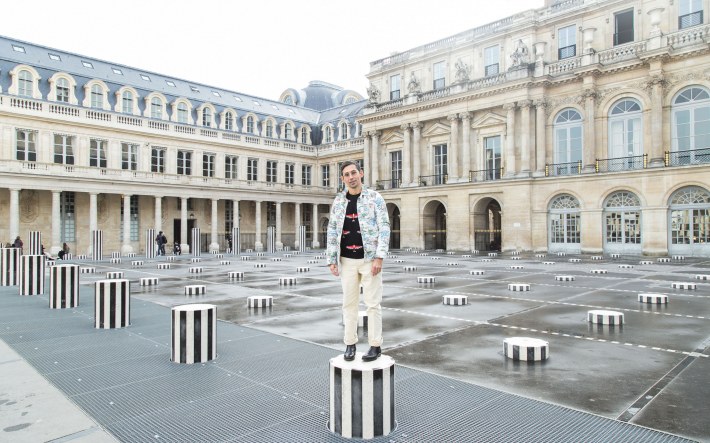Spaces of Transition
People in hotels are a peculiar species — and have inspired artists to soaring flights of creativity, as our columnist Rainer Moritz recounts
In in the summer of 1907, Marcel Proust, who was losing confidence in his artistic abilities, made the spontaneous decision to pay a visit to the newly opened Le Grand Hôtel Cabourg in Normandy. Already ailing at the time, Proust was sick of being cooped up in his Paris apartment and hoped that the Norman coast and the hotel’s amenities would bolster his health and, above all, help him make progress on his magnum opus, “In Search of Lost Time.” His tab open, he returned to Cabourg every summer for eight years, going on excursions, soaking up the peace and quiet of his hotel room, dining solo, and even trying his hand at gambling.
This routine was familiar to many of Proust’s artistic peers and contemporaries. The contrast between the solitude of their suite and the hustle and bustle of the downstairs hotel bar gave them a new lease of life. There they observed figures who would later become characters in their novels, or perhaps encountered the love of their life in the lobby.
A sojourn at a hotel demands an openness to the unknown. It requires you to let go of your familiar surroundings and inevitably brings you into contact with people who could not have less to do with your everyday routine. You spend time in a temporary state that, to a certain extent, exists outside the bounds of time. Just like coffee shops, train stations, and airports, hotel rooms and bars are fertile grounds for fascinating revelations. Brief encounters with people from every walk of life spark ideas for biographies and stories, which in turn evolve into new novels and tales. Such was the case for Thomas Mann, who incorporated experiences from his stays in grand hotels in “Death in Venice” and “Confessions of Felix Krull.”
Still today, we sit in the restaurant over our morning breakfast, plates piled high with fruit salad, croissants, and scrambled eggs. Observing the interactions at the other tables, all sorts of questions spring to mind. Who is that fidgety man dressed in a business suit — the one who keeps glancing at his smartphone every ten seconds? What exactly is he waiting for? Confirmation of a big deal that’ll advance his career? Or perhaps for the woman from the elevator yesterday, the one he gave his number? And what’s going on with that couple, seemingly in the prime of their lives, yet buried in the daily papers and studiously ignoring each other? Is their relationship on the brink of collapse? Or is this simply a habit they’ve gotten into over years spent in dining rooms? The answers remain mysteries, ones that may never reveal themselves. All the same, this kind of observation inevitably leads us to scrutinize ourselves.
Hotels are places of transition. They grant us time out, stop us getting stuck in the daily grind. They stimulate our creative energy by offering us a taste of the unfamiliar. People in hotels — like those described in Vicki Baum’s 1929 novel, “Grand Hotel” — are people who are open to new experiences. And, when the stars align, they use these experiences to write poetry, to draw, to develop ideas for a script, and perhaps even to write pieces about people in hotels. Just like Leonard Cohen, whose song “Chelsea Hotel No. 2” immortalized the New York hotel of the same name, which was once a magnet for notable artists.
Some creative geniuses even gain so much from their liminal lodgings that they decide to make their stays permanent, only ever feeling at home when oscillating between hotel lobbies and private quarters. The Austrian actor Ernst Waldbrunn once clearly stated his reasons for never wanting to leave Hotel Sacher in Vienna: “I’m not even capable of sewing on a button; they have the best maids there, the best cooks, the best porters. Anyone can fall to pieces in a poor house — but at the Sacher?” The establishment probably played a part in enabling Ernst Waldbrunn to bring his characters to life as creatively as ever. Because, if Marcel Proust is to be believed, hotels are just like a “stage” on which everyone has a role to play.
Rainer Moritz is a literary critic. Since 2005, he has directed the Literaturhaus Hamburg. Last year, he collaborated with photographer Andreas Licht to publish a book entitled “Der schönste Aufenthalt der Welt: Dichter im Hotel” (Knesebeck Verlag).







